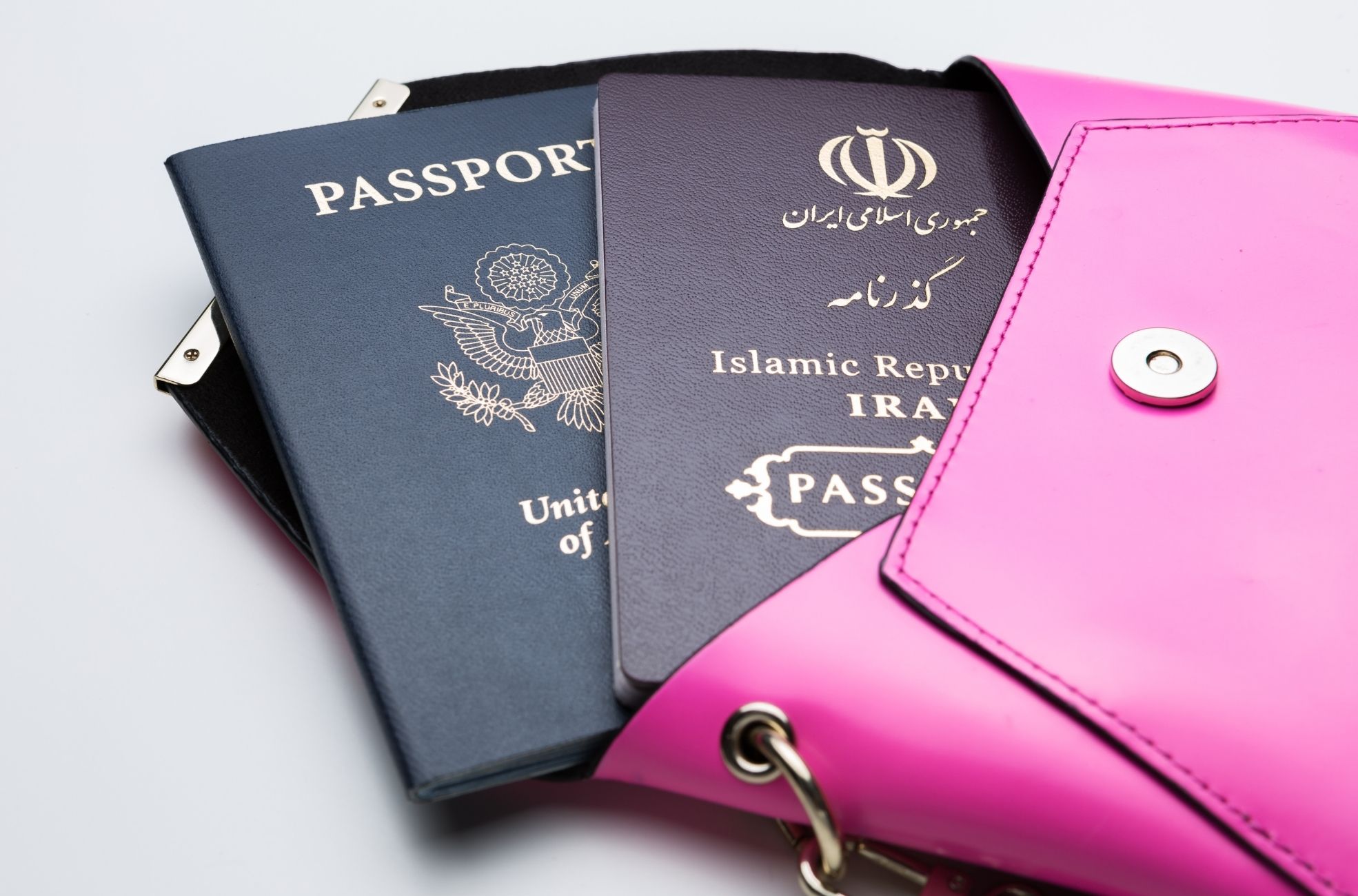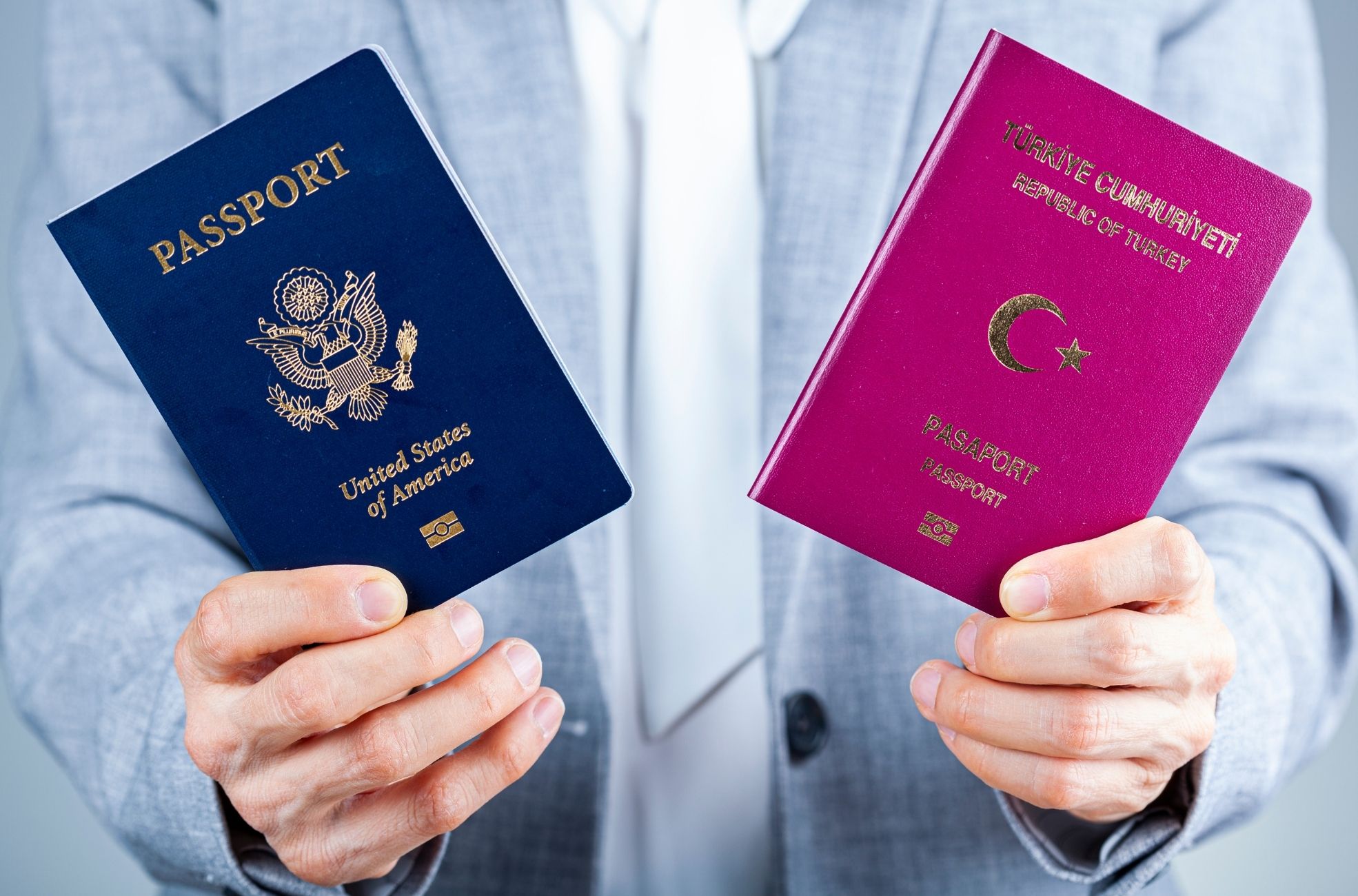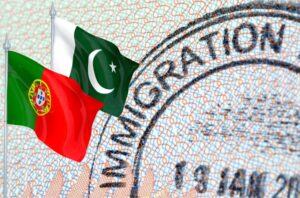Are you looking into obtaining dual citizenship? Perfect! We are going to discuss the benefits of dual citizenship. Picture this: You’ve got the flexibility to live, work, and study in two different countries, to travel without hassle between borders, and to tap into diverse economic opportunities. That’s the reality for dual citizens.
This article will guide you through acquiring dual citizenship, breaking down the legal implications, economic advantages, lifestyle benefits, and security aspects. We’ll also highlight possible drawbacks to ensure you’re fully informed. Your journey to maximize the opportunities offered by dual citizenship starts here.
Understanding Dual Citizenship
Dual citizenship, or dual nationality, means you’re legally a citizen in two countries simultaneously. Each country’s nationality laws, which can vary significantly, govern this status. You can acquire dual nationality in several ways, such as being born in a foreign country to parents who are nationals of another country or through naturalization in a country other than where you were born. Beyond this, there are also numerous countries that offer ‘Citizenship by Investment,’ which is precisely what it sounds like you invest in the country, and they reward you with citizenship. Gaining dual citizenship can be very beneficial for many reasons and not as hard to acquire as you may think!
Benefits of Dual Citizenship
-
Access to Two Labor Markets
-
Property Ownership Opportunities
-
Potential Tax Benefits
-
Ease of Trade and Business Operation
-
Greater Freedom of Mobility
-
Access to Better Healthcare and Education Opportunities
-
Cultural and Social Integration
-
The Right to Vote in Both Countries
-
Political Stability and Personal Safety
-
Protection from Statelessness
-
Dual Diplomatic Protection
-
Disaster and Crisis Management
Economic Advantages of Dual Citizenship
Holding a second passport can significantly impact your financial status, providing opportunities that single citizenship might not offer.
Access to Two Labor Markets
The ability to live and work in both nations without visa restrictions opens up a broader job market. This can be particularly beneficial if one nation has a more robust job market or higher wages in your profession. In most countries, being a citizen will allow you to work in the country without the need for a permit, which means you have access to twice as many job opportunities as a single-passport holder.
Property Ownership Opportunities
Dual citizenship significantly simplifies property acquisition, combining investment possibilities with the streamlined transactions afforded to citizens. For foreigners, property purchase is often encumbered by complex regulations, such as ownership restrictions, thorough approval processes, and additional financial requirements. In contrast, citizens face fewer bureaucratic obstacles, reduced paperwork, and possibly lower fees or taxes on property transactions.
Being a dual citizen opens up real estate opportunities in both countries, offering a broader spectrum of investment options. Markets in each country are characterized by distinct conditions—like economic growth, political climate, and demographic shifts—allowing dual citizens to diversify their investment portfolios across varied economic landscapes and lessen the risk tied to market volatility in any one nation.
Moreover, dual citizens usually enjoy better financing terms for buying property than the more restrictive conditions and limited options available to foreigners.
See this article on countries where you can own land and pay no property taxes.
Potential Tax Benefits
Dual citizenship may complicate tax situations but also offers potential advantages, such as tax treaties between the US and other countries that can mitigate or eliminate double taxation on global income. This means dual citizens of the US and another country can often avoid being taxed twice on the same income, potentially saving a significant amount in taxes, especially for those earning in both countries.
When selecting a country for your second citizenship, considering the tax implications is crucial. Countries like Dominica, Saint Kitts and Nevis, Malta, Grenada, Antigua and Barbuda, and Vanuatu stand out for their Citizenship by Investment Programs, accompanied by favorable tax regimes. These nations not only facilitate the acquisition of a second passport through investment but also offer either no tax or very minimal tax on income.
Ease of Trade and Business Operation
Dual citizenship can significantly streamline business operations by providing the freedom to live and work in both countries, enabling you to establish and manage businesses across borders seamlessly. This not only opens up new markets and customer bases, potentially boosting profits but also enhances your understanding of local business networks and market trends. Such insights are invaluable, offering a competitive edge by tailoring strategies to meet specific market needs more effectively.
Moreover, being a dual citizen simplifies international travel, facilitating smoother and more efficient business operations. This ease of movement is crucial for attending meetings, overseeing operations, and expanding your business presence globally.
Lifestyle Benefits of Dual Citizenship
Holding two passports from two nations can offer many lifestyle advantages. The most significant of these? The expanded freedom of movement it affords.
Greater Freedom of Mobility
Dual citizens can travel more easily between their two countries and often to other countries as well, without needing visas. This is particularly advantageous if both countries have strong passports with extensive visa-free travel agreements.
For instance, as a dual citizen of both the United States and Saint Kitts and Nevis, you could journey to Brazil without a visa, a privilege not extended to most US nationals. Additionally, some countries offer longer stay durations or more relaxed entry requirements to citizens of certain nations. Dual citizens can leverage the passport that offers the best terms for their travel plans, allowing for extended stays or reduced scrutiny upon entry. Not only can they use their passports to extend their stay in other countries, but they can actually save money by not paying for visas.
Access to Better Healthcare and Education Opportunities
Another significant advantage of dual citizenship is utilizing superior healthcare and education services. Dual citizens typically have the right to attend schools, universities, and other educational institutions in both countries. This opens up a diverse range of educational opportunities, from primary schools to higher education. It means access to different educational systems, teaching methodologies, and specializations that might not be available in one country alone.
Moreover, dual citizens often qualify for domestic tuition rates, which are significantly lower than the fees charged to international students. This can make higher education more accessible and affordable.
Dual citizenship allows individuals to choose from a wider range of healthcare providers and facilities, often for free. If the healthcare system in one country is under strain or if there are long waiting times for certain treatments, a dual citizen can opt to seek care in the other country. This flexibility can be crucial in ensuring timely and quality medical care.
Cultural and Social Integration
Dual citizens enjoy the unique advantage of immersing themselves in the cultural heritage of two nations, enabling them to connect with, explore, and celebrate diverse traditions, customs, and histories. This rich cultural integration fosters a deep understanding and appreciation of the world’s multifaceted societies.
Moreover, as a dual citizen, you’re often exposed to multiple languages, enhancing linguistic skills and offering cognitive advantages. Being bilingual or multilingual not only facilitates communication across cultures but also enriches personal and professional relationships. It opens doors to a broader range of social networks, allowing for a more profound connection with people from different backgrounds.
Additionally, cultural integration through dual citizenship encourages empathy and global awareness. By living and participating in the cultural life of two countries, individuals develop a more nuanced perspective on international issues and a greater sense of global citizenship. This cultural dexterity is invaluable in today’s interconnected world, where understanding and navigating cultural nuances can significantly impact social interactions, business negotiations, and collaborative efforts across borders.
This blend of cultural experiences and linguistic abilities significantly enhances one’s adaptability, making dual citizens valuable assets in multicultural environments and contributing to a more inclusive and understanding global community.
The Right to Vote in Both Countries
Citizens of the country they choose to live and work in possess the right to vote in elections, whereas foreign residents do not. This presents a significant benefit, as the results of these elections directly influence many facets of life, including healthcare, education, infrastructure, and economic policies. Through voting, individuals can impact these areas to reflect their needs and preferences.
Additionally, the act of voting strengthens a sense of belonging and identity within a country. This aspect is particularly meaningful for those with dual citizenship, as it aids in connecting them with both sides of their heritage and identity.

Security Aspects of Dual Citizenship
Political Stability and Personal Safety
One of the significant advantages of dual citizenship is the additional security it provides. It can act as a safeguard against political upheaval or unfavorable law amendments in either nation.
For instance, if one nation is experiencing political unrest or legal alterations that adversely impact, dual citizens have the alternative to reside in the other nation where they hold citizenship. This adaptability can provide a sense of constancy and safety.
Protection from Statelessness
Another crucial aspect of dual citizenship is the safeguard it offers from statelessness. Being stateless can limit travel and commercial opportunities. It’s a circumstance that nations, including the US, actively strive to avoid.
For example, US embassies will only allow you to renounce your US citizenship if you demonstrate that you hold citizenship elsewhere. As a dual citizen, you have the reassurance that you will always have a nation to identify with. This is a significant security advantage.
Dual Diplomatic Protection
Dual citizenship also provides the advantage of dual diplomatic protection. This means that you can seek assistance from the embassies or consulates of either nation where you hold a second passport.
This can be particularly beneficial during times of crisis or when you require assistance while traveling overseas. For instance, if you were to misplace your passport or encounter legal issues, you have two diplomatic entities that you can seek help from.
Disaster and Crisis Management
Being a dual citizen can be a lifesaver in times of disaster or crisis. Each nation where you hold dual citizenship rules is responsible for protecting you. This can include evacuation during a natural disaster or political crisis.
This dual protection can provide peace of mind and an additional layer of security. Furthermore, as a dual citizen, you can also access medical treatments or procedures that might not be available in one nation but are in two other countries. This can be a significant advantage during a health crisis.
Reflecting On Possible Drawbacks
Potential Double Taxation
While tax treaties and programs like the Foreign Earned Income Exclusion and the Foreign Tax Credit can mitigate the risk, the possibility of double taxation remains a concern for dual citizens, especially those with US and foreign citizenship.
Military Service Obligations
Certain countries may require their citizens, including those with dual citizenship, to fulfill mandatory military service. While this doesn’t necessarily contravene US law, it could potentially result in the loss of US citizenship under specific circumstances.
Legal Complications
Having dual citizenship comes with certain legal implications. For example, as a dual foreign national, you owe allegiance to both countries and must obey both countries’ laws. This means that either country can enforce its laws on you.
Additionally, while many countries recognize dual citizenship, some may require you to renounce your original citizenship to become a citizen in another country. For individuals with dual citizenship, it’s crucial to understand that the ease of entry into a country can differ based on which passport they choose to use, as countries have different agreements and recognitions of dual citizenship.
Divided Loyalties and Cultural Challenges
While dual citizenship can enrich your understanding of culture and identity, it can also lead to a sense of divided loyalty and cultural challenges. Accessing resources and opportunities in both countries can be a boon. Still, it can also lead to a sense of dislocation and the need to choose between them. This can result in a complex interplay of personal and political factors, leading to a nuanced understanding of belonging.
How Do You Get Dual Citizenship?
To get dual citizenship, you apply for citizenship in a second country while keeping your original citizenship. For instance, if you’re a US citizen and want to become a citizen of another country, you need to apply via their Citizenship By Investment Program.
How to Apply For Citizenship by Investment
- Research and Select a Program: Start by researching different CBI programs to find one that suits your needs in terms of investment options, cost, benefits, and eligibility criteria. Consider factors like visa-free travel, tax advantages, processing time, and residency requirements. Most importantly, make sure the country allows dual citizenship with the country you currently have citizenship with.
- Consult with an Expert: Consult with us at Next Generation Equity. We are experts in this area and can provide guidance on the best program for your circumstances, explain the process, and help prepare your application.
- Prepare Documentation: Collect all necessary documentation. This typically includes a valid passport, birth certificate, marriage certificate (if applicable), police clearance certificate, proof of address, medical health certificate, and financial statements, among others. Requirements vary by program.
- Choose Your Investment Option: Decide on the investment option you will pursue, whether it’s a non-refundable donation to a national fund, investment in real estate, government bonds, or a business venture. Make sure you understand the minimum investment required and any associated fees.
- Submit Application: Fill out the application forms provided by the program authority. Attach all required documentation. We can help ensure that your application is complete and correctly filled out.
- Pay Application Fees: Pay the non-refundable application and due diligence fees. These fees cover the cost of processing your application and conducting background checks.
- Due Diligence Checks: The government or an authorized agency will conduct thorough due diligence checks to verify your background, financial history, and the legitimacy of your funds. This step is crucial for the approval of your application.
- Make Your Investment: Once your application passes the due diligence checks and receives initial approval, you will be instructed to proceed with the investment. Ensure that you comply with the specified investment requirements.
- Receive Approval and Citizenship Certificate: After making the investment and providing proof thereof, your application will be finalized, and you will receive an official approval letter. Subsequently, you will be issued a citizenship certificate.
- Passport Application: With your citizenship certificate, you can now apply for your new passport. Submit a passport application along with any required photos and additional documentation as specified by the program.

The Best Countries to Get Second Citizenship In
1. Dominica
The Dominican Citizenship by Investment (CBI) Program offers one of the quickest paths to obtaining a second citizenship, with a processing time of just 3 to 4 months, without requiring applicants to give up their current nationality. It provides two investment routes for citizenship:
- Economic Diversification Fund (EDF):
- USD 100,000 donation for a single applicant.
- USD 150,000 donation for a couple.
- USD 175,000 for a family unit including the main applicant, their spouse, and two dependents (excluding siblings).
- Real Estate Investment:
- Requires investing a minimum of USD 200,000 in approved property.
Dominican passport holders gain visa-free access to over 130 countries, including the Schengen area, the United Kingdom, and many Commonwealth nations. Additionally, investors benefit from corporate tax advantages, no import duties, an export allowance, and tax relief opportunities. The cost of living in Dominica is also a drawcard, as living is very affordable.
2. Saint Kitts and Nevis
The Saint Kitts and Nevis Citizenship by Investment (CBI) Program, launched in 1984, is the world’s original second citizenship program. It offers a swift path to obtaining a second passport, with a processing time of around 4 months, making it one of the quickest options available.
This program stands out for its family-friendly approach, requiring just a USD 150,000 investment for a family of up to four, with the option to add additional qualified dependents for USD 10,000 each.
- Real Estate Investment:
- A USD 400,000 investment in a condominium unit with a 7-year holding period.
- A USD 400,000 investment in shares of an approved hotel or resort.
- A USD 800,000 investment in a private home with a 7-year holding period.
- Public Benefit Option:
- Contribute USD 250,o00 to an approved public benefactor project.
- Sustainable Island State Contribution (SISC) :
- Contribute USD 350,000 for a single applicant.
- Contribute USD 400,00 for a main applicant plus either a spouse or dependant.
- Contribute USD 450,000 for a main applicant plus a spouse and two dependants, or the main applicant plus 3 dependants.
Citizens of Saint Kitts and Nevis can travel visa-free to over 150 countries, including the Schengen area, and enjoy exemption from taxes on income, capital gains, gifts, and inheritance. Additionally, passport holders benefit from tax-free trade with Canada and duty-free trading throughout the Caribbean.
3. Saint Lucia
The Saint Lucia Citizenship by Investment (CBI) Program provides a streamlined route to acquiring second citizenship in just 4 to 6 months, allowing applicants to obtain permanent residency without the necessity of visiting or residing in Saint Lucia.
The program is notably inclusive, allowing for the addition of the applicant’s spouse, children, parents, and siblings.
- National Economic Fund:
- USD 100,000 non-refundable contribution to the National Economic Fund for the main applicant.
- USD 140,000 for the main applicant and spouse.
- USD 150,000 for a family of up to four.
- An extra USD 25,000 for each additional dependent.
- Real Estate Investment:
- A minimum investment of USD 200,000 in real estate that must be held for 5 years.
- Approved Enterprise Project:
- Individual applicants must invest at least USD 3.5 million in a government-approved project and create at least three full-time jobs.
- Alternatively, a group of applicants can collectively invest USD 6 million (each contributing a minimum of USD 1 million) to the same type of project, resulting in at least six new full-time jobs.
- Government Bond Investment:
- Allocate a minimum of USD 300,000 towards purchasing non-yielding government bonds, maintaining the investment for a duration of five years.
Saint Lucian citizens gain visa-free travel to over 130 countries, including the UK, Schengen zone, and Commonwealth countries. Moreover, they benefit from an advantageous tax regime without taxes on capital gains, foreign income, gifts, inheritance, personal income, or wealth. The low cost of living in Saint Lucia is also another added benefit.
4. Antigua and Barbuda
The Antigua and Barbuda Citizenship by Investment (CBI) Program offers a swift path to obtaining passports within 4 to 6 months, without the prerequisite of visiting or living in the country initially. However, it mandates a minimal residency of 5 days within the first five years of obtaining citizenship.
- National Development Fund:
- A contribution of USD 100,000 for a family of 4 or less.
- A contribution of USD 125,00 for a main applicant with a family of 5 or more.
- The University of the West Indies Fund (UWI):
- USD 150,000 for a family of up to 6, with one family member being awarded a one-year, tuition-only scholarship at UWI.
- Real Estate Investment:
- A minimum investment of USD 400,000 in real estate that must be held for 5 years.
- A joint minimum investment of USD 200,000 each in real estate that must be held for 5 years.
- Business Investment:
- Purchase an approved business for a minimum of USD 1.5 million.
- Purchase an approved business with other parties, totaling USD 5 million together (each individual must contribute USD 400,000 as a minimum).
Citizens of Antigua and Barbuda enjoy visa-free access to over 140 countries and benefit from a tax regime that includes no taxes on foreign income, estates, or capital gains. The cost of living in Antigua and Barbuda is also low, which provides a great financial benefit for those looking to save money.
For entrepreneurs, the program opens avenues for business ventures and duty-free commerce within the Caribbean, augmented by the stability of a USD-pegged currency.
5. Grenada
The Grenada Citizenship by Investment (CBI) Program provides a fast-track route to citizenship within 4 to 6 months, with a starting contribution of USD 150,000 to the National Transformation Fund for individual applicants.
- National Transformation Fund:
- A contribution of USD 150,000 for a single applicant
- A contribution of USD 200,000 for a family of 4 or less
- A contribution of an extra USD 25,000 for any additional dependants
- Real Estate Investment:
- A minimum investment of USD 220,000 into shares in real estate projects such as hotels, resorts, or villas.
- Purchase real estate worth at least USD 350,000 and hold it for 5 years.
Benefits for Grenadian citizens include visa-free travel to over 140 countries and eligibility for the U.S. E-2 visa, offering the right to live and work in the United States. Additionally, Grenadian citizens’ children are entitled to a 90% tuition fee reduction at Saint George’s University, known for its prestigious medical programs. Not only are children offered low-cost schooling, but the overall cost of living in Grenada is very affordable.
6. Vanuatu
The Vanuatu Citizenship by Investment (CBI) Program offers a swift pathway to acquiring citizenship within a period of 2 to 3 months, starting with an investment of approximately USD 130,000 towards the National Development Fund for a single applicant.
- National Development Fund:
- For a single applicant, a contribution of USD 130,000 to the development of Vanuatu’s economy is required.
- For the main applicant and a spouse, a contribution of USD 160,000 to developing Vanuatu’s economy is required.
- For a family of 4, a contribution of USD 180,000 to developing Vanuatu’s economy is required.
- An additional USD 15,000 is required for each additional dependant.
- Government Bond’s Investment:
- A minimum investment of USD 97,680 into a bond maturation of 3 years.
- A minimum investment of USD 110,704 into a bond maturation of 2.5 years.
- A minimum investment of USD 117,216 into a bond maturation of 2 years.
A significant advantage for Vanuatu citizens includes visa-free or visa-on-arrival access to around 129 countries, including the United Kingdom, European Union countries, and many other nations across the globe. Unlike many other citizenship programs, Vanuatu also offers attractive tax policies, such as no income tax, wealth tax, inheritance tax, or capital gains tax, positioning it as an appealing option for individuals and investors seeking to optimize their tax liabilities. To see the cost of living in Vanuatu, check out our blog.
Vanuatu’s citizenship also facilitates easier travel, business opportunities in a tax-friendly environment, and a straightforward application process without the need for residency before obtaining citizenship. This makes Vanuatu an enticing option for those looking to expand their global mobility and financial flexibility.
All Countries That Recognize Dual Citizenship
Not all countries recognize dual citizenship. The US is one of these few countries that permit dual citizenship and even provides for triple citizenship. However, some countries, like India and Japan, don’t recognize dual citizenship.
Below are the countries that allow dual citizenship:
|
|
|
|
Wrapping Up Dual Citizenship
Navigating the world as a citizen of two nations is an exploratory journey of a lifetime. From the diversity in cultural experiences to the enhanced employment opportunities, the benefits of dual citizenship far outweigh the potential challenges.
It’s a safety net, offering a fallback option should one country experience political turmoil or economic instability. It’s a doorway to new experiences, affording a broader perspective on the world and fostering personal growth.
However, it’s essential to navigate this journey informed by the legal, taxation, and cultural nuances. If you are looking to get your second passport via Citizenship by Investment, contact us here at Next Generation Equity.
FAQ
How can I get citizenship in the US?
In the US, gaining citizenship usually requires submitting Form N-400, also known as the “Application for Naturalization,” to US Citizenship and Immigration Services (USCIS). You typically need to live in the US for 3–5 years after getting a green card to meet the residency requirements to obtain citizenship there. However, the naturalization process can take up to 1.6 years, depending on the USCIS field office handling your application.
How many citizenships can you have?
In countries that permit dual or multiple citizenships, theoretically, there is no fixed limit to the number of citizenships one can acquire. The practical limit would be determined by the legal frameworks of the countries whose citizenships are being considered and the individual’s ability to meet each country’s naturalization or citizenship criteria.
However, it’s important to note that managing multiple citizenships can become complex, especially when considering obligations such as taxes, military service, and adherence to different countries’ laws.
How does dual citizenship impact property ownership?
Holding dual citizenship can simplify the process of buying and owning property in both countries, as citizens often face fewer restrictions than foreigners.
What is dual citizenship?
Dual citizenship occurs when an individual is legally recognized as a citizen of two countries simultaneously. It grants rights and privileges in both nations.
Which countries don’t allow dual citizenship?
The countries that exclusively don’t allow dual citizenship are Austria, Japan, Netherlands, Singapore, Saudi Arabi, and China.





